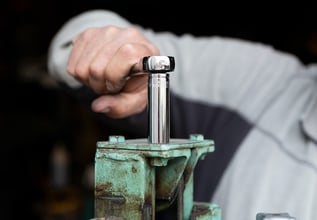
6 Tips for Proper Maintenance of Waste Management Machinery
Efficient waste management is crucial for the well-being of our communities and the environment. Waste management machinery plays a pivotal role in handling and processing waste effectively. To ensure the longevity and optimal performance of these machines, proper maintenance is essential. In this article, we'll explore some valuable tips for maintaining waste management machinery, highlighting the importance of regular inspections, routine cleaning, and adherence to manufacturer guidelines.
1) Regular Inspections:
Regular inspections are the cornerstone of effective machinery maintenance. Conduct thorough visual inspections to identify any signs of wear, damage, or malfunction. Pay close attention to components such as conveyor belts, blades, and hydraulic systems. Early detection of issues can prevent major breakdowns and costly repairs. Establish a comprehensive inspection checklist and follow it diligently to ensure all crucial elements are covered.
2) Routine Cleaning:
Waste management machinery is exposed to a variety of materials that can lead to clogs, corrosion, and wear. Implement a routine cleaning schedule to remove debris, grease, and other substances that can compromise the machine's functionality. Use appropriate cleaning agents and tools recommended by the manufacturer to avoid damage to sensitive components. Regular cleaning not only extends the lifespan of the machinery but also ensures optimal performance.
3) Lubrication:
Proper lubrication is vital for the smooth operation of waste management machinery. Insufficient lubrication can lead to increased friction, overheating, and premature wear of moving parts. Follow the manufacturer's guidelines for lubrication intervals and use the recommended lubricants. Regularly check oil levels and top up as needed. Remember that over-lubrication can be as harmful as under-lubrication, so strike the right balance to maintain machinery efficiency.
4) Training and Education:
Ensure that your maintenance staff is well-trained and educated on the specific requirements of each waste management machine. Proper training reduces the risk of mishandling or incorrect maintenance procedures, which can result in damage to the machinery. Stay updated on the latest industry standards and advancements, and provide ongoing training to keep your team informed about best practices.
5) Documented Maintenance Records:
Keep detailed records of all maintenance activities performed on each piece of waste management machinery. Documenting maintenance activities helps track the machine's history, identify patterns of issues, and plan for future maintenance needs. This information is invaluable when troubleshooting problems and can also be essential for warranty claims.
6) Adherence to Manufacturer Guidelines:
Always adhere to the manufacturer's guidelines and recommendations for maintenance. These guidelines are designed to optimise the performance and safety of the machinery. Deviating from these recommendations can lead to warranty issues, decreased efficiency, and potential safety hazards. Familiarise yourself with the manufacturer's documentation and make it readily available to your maintenance team.
Proper maintenance of waste management machinery is essential for the efficient and safe handling of waste materials. By implementing regular inspections, routine cleaning, proper lubrication, ongoing training, and adherence to manufacturer guidelines, you can extend the lifespan of your equipment and minimise downtime. Investing time and resources in maintenance practices will not only save costs in the long run but also contribute to a more sustainable and effective waste management process.
Bergmann Direct have a nationwide network of engineers with decades of experience in the waste machinery sector, contact us today to see how Bergmann Direct can get your machinery running efficiently and safely.
